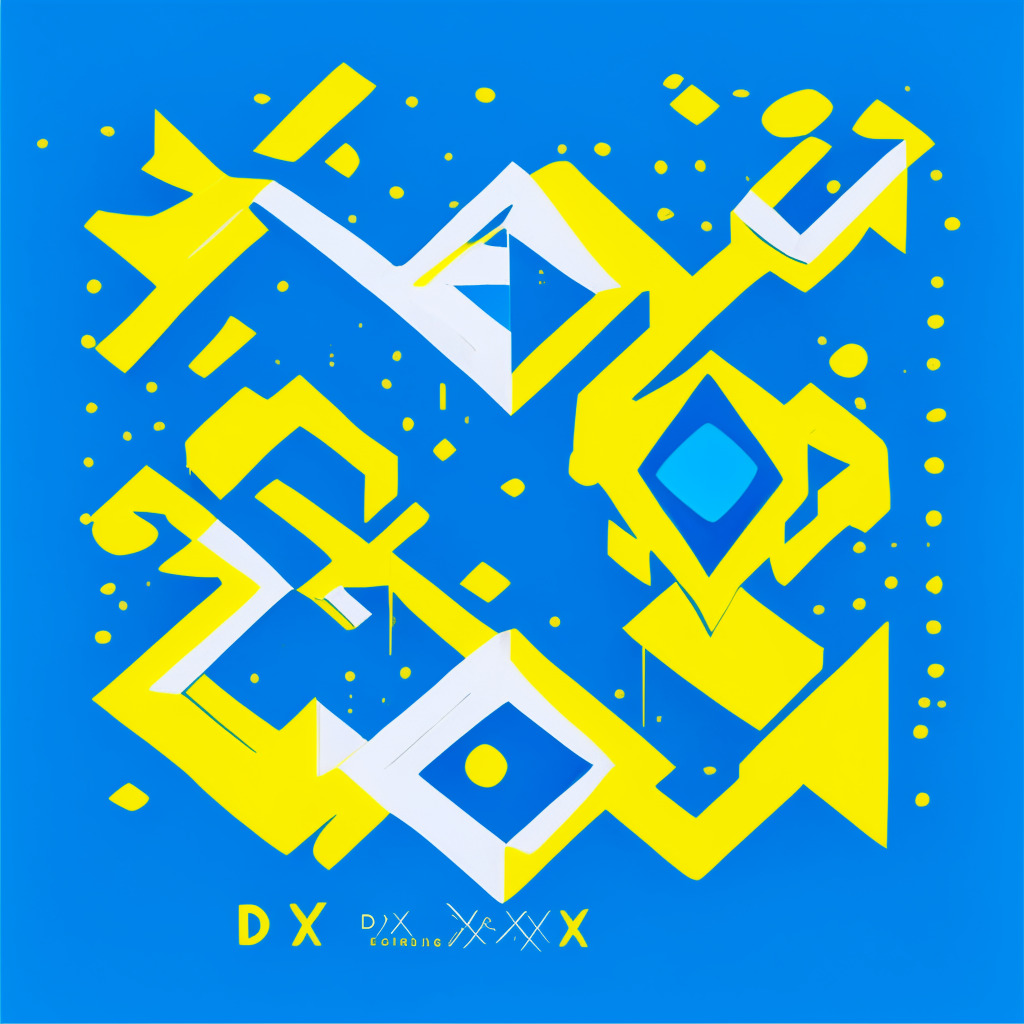Ethereum’s co-founder, Vitalik Buterin, leads a privacy protocol initiative, ‘Privacy Pools,’ employing zero-knowledge proofs to verify user funds legitimacy, preserving transactional privacy. The protocol aims to create a separation that filters out funds related to criminal activities, harmoniously balancing financial privacy and regulation.
Search Results for: Ethereum Ethereum
Examining Casa’s Newest Ethereum Feature: Privacy Boost vs Public Transaction Visibility
Casa’s new transaction relay feature aims to provide more privacy for its Ethereum users. While this innovation is exciting, it can make Ethereum addresses linked to Casa publicly viewable, raising privacy concerns. However, the use of an ETH Pay Wallet can serve as a relay to transact from a vault, mitigating this issue.
Scaling the Ethereum Blockchain: The Promising Rise and Potential Pitfalls of Layer 2 Solutions
To combat increasing transaction times and fees, Ethereum is utilizing layer 2 scaling solutions, resulting in faster transaction speeds, lower costs, and maintaining security. These networks enhance throughput and transaction rates, drawing significant attention. However, layer 2 chains also face criticism, largely from crypto users maximizing profitability through airdrop farming.
Pioneering the First Ethereum Spot ETF: VanEck & ARK21Shares Navigate Regulatory Hurdles
“VanEck and ARK 21Shares have filed for the first-ever Ether (ETH) spot Exchange-Traded Fund (ETF) in the United States. The filings with the U.S Securities and Exchange Commission disclose that ARK21Shares Ethereum ETF will directly hold ETH to track its performance.”
Pros and Cons of Possible Spot Ethereum ETFs Launch in the US: An In-Depth Analysis
“The crypto markets buzz amidst ‘official’ steps towards the launch of spot Ethereum exchange-traded funds (ETFs) in the U.S., initiated by VanEck and ARK. This could open new opportunities for investors, despite potential risks like market volatility and regulatory delays.”
Proposed Ark 21Shares Ethereum ETF: Catalyst for Crypto Revolution or Market Volatility Intrigue?
“ARK Invest and 21Shares are seeking regulatory approval for a groundbreaking exchange-traded fund (ETF) that would directly invest in the second-largest cryptocurrency, Ethereum (ETH). Despite causing a brief surge in crypto prices, this filing also raises questions about the market’s volatility and readiness for such transformative financial instruments.”
Shifting Alliances in Crypto Winter: MakerDAO’s Migration and Ethereum’s Controversy
“In the midst of a crypto winter, the blockchain industry is innovating and adapting. Major shifts like MakerDAO’s potential move from Ethereum to Solana or Cosmos depict this change. Discussions suggesting Ethereum should have a “Supreme Court” for disputes also indicate this evolution. Amid technological advances, the volatile crypto world is reminded: “Money doesn’t materialize out of thin air.””
Decentralization Debate: Ethereum’s Layer 2 Solutions Face Security Fears
“Layer 2” solutions like Arbitrum, Optimism, and Coinbase’s Base offer alternatives to the Ethereum network by bundling transactions. But their reliance on a centralized “sequencer” introduces potential bottlenecks and regulatory scrutiny. While there are calls for decentralizing, experts argue that it might compromise security. The future of blockchain depends on efficient decentralization strategies, robust security and fraud prevention.
Bitcoin vs. Ethereum: The Race Tightens Amid Market Lull and Regulatory Rumbles
“The crypto market leader, Binance, remains dominant despite regulatory concerns, with its bitcoin-tether pair contributing up to 86% of global transactions. Meanwhile, crypto analytics firm K33 predicts ETH will outpace Bitcoin in the next two months, while SOMA Finance is set to introduce the first legally issued digital security.”
Ethereum’s Journey: Navigating Lower Trends and Paving the Road to Recovery
“In the backdrop of economic instability and Bitcoin ETF evaluation, Ethereum has seen a 5% loss in the last week. Despite recent falls, significant indicators like the 30-day moving average and relative strength index suggest a phase of correction and recovery. Ethereum’s dominance in DeFi, total value locked, and recent PayPal stablecoin announcement also paint a hopeful future for the cryptocurrency. However, investors looking for quicker gains might consider new altcoins like Wall Street Memes (WSM).”
dYdX’s Bold Leap: Migrating from Ethereum to Cosmos with Decentralized Order Books
“dYdX is introducing decentralized order books to their platform and is shifting from the Ethereum network to the Cosmos network. CEO Charles d’Haussy proposes an innovative blend of decentralization and speed, hosting order books within the validators. This ambitious transition seeks to achieve a ‘purely decentralized’ order book exchange while ensuring high-speed crypto derivative responses.”
Examining the Potential Impact of a Bitcoin ETF Approval and Ethereum’s Prospective Rise
“K33 Research analysts predict the potential of a Bitcoin ETF approval may dramatically boost Bitcoin’s buying pressure, yet this has been largely underestimated in the crypto market’s subdued reaction. In contrast, Ethereum is predicted to outperform Bitcoin in future months, likely propelled by momentum ahead of a futures-based ETF listing.”
Ethereum Layer 2 Outage and Genesis Spot Trading Discontinuation: Probing the Crypto Landscape
In its first significant mishap, Ethereum Layer 2 network, Base, experienced an outage halting new block production. Despite quick repair and recovery, concerns about the reliability of such newer networks have been raised. The future of blockchain may be promising, but these newer platforms must work on technical robustness and gaining users’ trust. Meanwhile, Genesis Global Trading announced the voluntary cessation of its spot trading services, reflecting the stiff competition and constant evolution in the crypto market.
Ethereum’s Struggle: Battling Market Fear Amid Shaky Support Levels
Despite Ethereum’s 31.3% price surge between March 10 and 18, there are concerns about the crypto’s ability to maintain this upward momentum. Rising bearish sentiment, decreases in key ETH price metrics, and negative market developments are troubling the ecosystem. There are fears over potential liquidation of some $4.8 billion ETH deposits held in the Grayscale Ethereum Trust, amid declining smart contract transactions and investor interest. Ethereum’s position is further pressured by its competitors like Visa integrating Solana blockchain and Coinbase planning to convert old versions of USDC to a new format.
The Ethereum Supreme Court: A Radical Notion to Enhance Blockchain Safety and Stability
Matter Labs CEO, Alex Gluchowski, suggests the creation of an “Ethereum Supreme Court” to mediate disputes that could impact the Ethereum blockchain’s integrity. His proposed system aims to formalize Ethereum’s “social consensus layer” to safeguard platforms against exploitation, enabling community-engaged contract-based mediation in crisis scenarios.
Ethereum-based Wallet Scams: The Dark Side of Crypto Convenience or Heightened Awareness Call?
“Scammers exploit MetaMask’s reputation by redirecting users to fake websites via official government website URLs. Unwary users link their MetaMask wallets to these hoax sites, inadvertently giving fraudsters control over their assets. Despite MetaMask’s efforts, such scams have left crypto enthusiasts questioning their holdings’ security.”
Federal Reserve Impacts on Bullish BTC and Ethereum’s Centralization Struggles
Arthur Hayes, former CEO and co-founder of Bitmex, anticipates a response to the BTC bull market within six to twelve months. This expectation is connected to the Federal Reserve’s $25 billion program meant to stabilize the U.S. banking system. Meanwhile, Ethereum faces challenges around the centralization of nodes and scalability.
Ethereum’s Tug of War: Struggling Between Node Centralization and Ultimate Scalability
Ethereum is battling with the issue of node centralization, with much of its network activity verification reliant on centralized services like AWS. Ethereum’s co-founder, Vitalik Buterin, has indicated that true decentralization, achievable through “statelessness” and operability on affordable hardware, is a key part of Ethereum’s long-term roadmap, despite the technical challenges anticipated.
Ethereum Supreme Court: A Solution for DeFi’s Contract Disputes or a Threat to Small Protocols?
Matter Labs CEO, Alex Gluchowski proposes an “Ethereum Supreme Court” for dealing with recurring smart contract disputes in DeFi. His vision involves a blockchain-based court system, similar to real-world judiciaries, to provide resolution for contract-related disagreements, particularly focusing on enhancing measures to handle unforeseen vulnerabilities and emergencies in Layer 2 implementations.
Accelerating Blockchain’s Future: How Arbitrum’s Stylus Transforms Ethereum Virtual Machines
The founder of Arbitrum, Ed Felten, introduces Stylus as a game-changer for Ethereum Virtual Machines (EVMs). Stylus allows developers to use languages like Rust, C, and C++, speeding up computations and reducing gas costs. This could lead to advancements in code development, higher performance on-chain operations, and potentially making EVMs safer.
Decoding the ‘Ethereum Supreme Court’ Vision: Innovative Shield or Expensive Experiment?
Alex Gluchowski of Matter Labs proposes the formation of an ‘Ethereum Supreme Court’, an on-chain hierarchical court system working alongside current judicial structures to safeguard the Ethereum network against undue external interference. This system aims to handle various issues like disputes and emergency upgrades but its success depends largely on social consensus.
Ethereum’s Co-founder Sells Remaining Stake in MakerDAO: A Signal for Blockchain’s Future?
Ethereum co-founder, Vitalik Buterin, recently traded his remaining stake in MakerDAO tokens after MakerDAO’s co-founder announced plans to reimplement the project on a new blockchain, NewChain. The move shows shifting alliances and notable developments in blockchain dynamics.
Ethereum’s Staking Limit, Argentina’s Bitcoin Surge, and Blockchain Security: Weekly Crypto Roundup
“In an evolving crypto landscape, Ethereum staking providers limited their ownership to 22%, towards decentralization. Bitcoin adoption rises in Argentina contrasting El Salvador’s caution. Binance addresses regulatory environment while security concerns persist despite OpenZeppelin’s Defender 2.0 upgrade. NFTs, CBDCs progress, and stricter crypto regulations emerge.”
Ethereum’s Market Struggle: An Unsteady Path to Growth or a Descent to Depths?
“Ethereum’s price is struggling to push past the $1,750 mark, prompting fears of further losses. However, hopes remain for a breakthrough at $1,700, possibly leading to $1,800. However, resistance at these levels may force Ethereum to find support at lower price points.”
Accelerating Ethereum Blockchain Verification: StarkWare, Herodotus, and New Challenges Ahead
“StarkWare and Herodotus have launched proprietary technology enabling users to verify data from any point in Ethereum’s blockchain history. This new technology, using on-chain accumulator and STARK proving technology, enhances blockchain access, speeds up data verification and could revolutionize Ethereum-based applications and services.”
Preserving Decentralization: Ethereum Staking Giants Pledge to Self-Limit Market Share
Several leading Ethereum liquid staking providers, including Rocket Pool, StakeWise, Stader Labs, Puffer Finance, and Diva Staking, are adopting a self-limiting strategy to own no more than 22% of the Ethereum staking market, thus working to avoid a potential increase in staking centralization. This move is in contrast to entities like Lido Finance, which advocates for growth and dismisses the self-limitation approach.
Cryptocurrency Predicaments: Ronaldinho’s Alleged Scam and Ethereal Debate on Ethereum Staking
Former professional soccer player, Ronaldinho denied his involvement in a $61 million crypto pyramid scheme at a congressional hearing in Brazil. The scheme, known as “18kRonaldinho” used his likeness to promise daily returns of 2% on cryptocurrency. The verdict is still out on the reimbursement for those who invested in the company, highlighting the complexity of crypto-regulations and market dynamics.
Ethereum’s Liquid Staking: Controversy Erupts over 22% Validator Cap Debate
Ethereum liquid staking providers, including Rocket Pool, StakeWise, Stader Labs, and Diva Staking, have agreed to a self-imposed limit of 22% ownership of validators to maintain Ethereum’s decentralization. Proposed by Ethereum core developer Superphiz, this limit is seen as a means to prioritize network health over profits, requiring at least four major entities to finalize the chain. However, Lido Finance, the leading Ethereum staking provider, opposes this limit.
Robinhood’s Colossal Ethereum Wallet: A Peek into Crypto Brokerage Titans and the Challenges Ahead
“Robinhood reportedly owns one of the world’s largest Ethereum wallets, holding over 1.5 million ETH worth about $2.54 billion. In addition to Ethereum, the wallet also embraces over 100 other ERC-20 tokens valued at $177.1 million.”
Riding the Wave of Memes: Ethereum Classic’s Struggles vs Sonik Coin’s Boom
“Ethereum Classic (ETC) network activity dips amid market volatility, generating mere $26 in fees within 24 hours, fueling concerns about its future. Meanwhile, meme coin Sonik Coin ($SONIK), boosts market presence, promising high returns with a staggering 91% staking APY and strategic branding, despite the inherent market risks.”
Ethereum’s Scalability Contest: Layer-2 Solutions and the Turning Tide of Gas Fees
Ethereum’s congestion problem might be calming with the help of “layer-2” projects designed for faster, more affordable transactions. Base, a layer-2 project from Coinbase, may demonstrate this effectiveness, as Ethereum’s gas fees have significantly dropped, likely due to layer-2 solutions. Ethereum’s upcoming upgrade, EIP-4844, could further maintain this balance by increasing L2 throughput and reducing transaction costs. However, Ethereum’s future remains uncertain, as the effectiveness of layer-2 projects to resolve scalability issues is yet to be seen.
Bridging the Gap: BOB Solution Blends Bitcoin and Ethereum Amid Controversy
“Interlay recently unveiled its Minimum Viable Product (MVP), the Build on Bitcoin (BOB) solution, designed to link Ethereum blockchain advancements with Bitcoin’s user community. BOB will enable decentralized application development, leveraging Rust smart contracts compatible with Bitcoin legacy libraries, while also supporting Ethereum Virtual Machine. Despite concerns from some Bitcoin advocates, the Interlay team remains optimistic about broadening Bitcoin’s applicability.”































